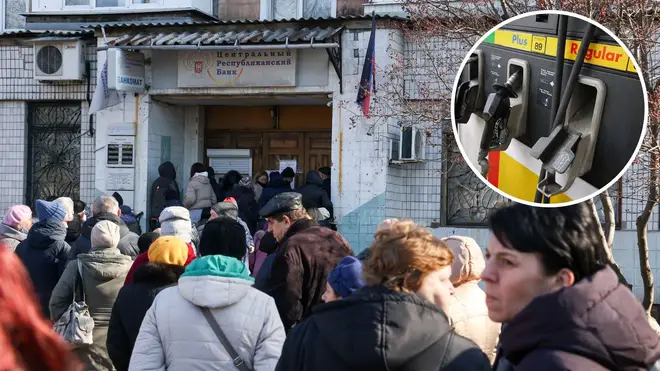
Paul Brand 10am - 12pm
28 February 2022, 13:06

Petrol prices hit an all-time high of 151p per litre as the Russian invasion of Ukraine continues to hit the cost of living.
Yesterday, research showed customers were paying 151.25p a litre when it was just 150.65 at the pumps 24 hours earlier.
This new cost means it now costs £83.91 to fill up the average 55-litre petrol tank - £16 more than a year ago.
The price of diesel also reached record levels hitting 154.69p on Saturday and 154.72 on Sunday.
Figures from data firm Experian Catalist and the AA showed the huge leap on Saturday and Sunday.The pump price averaged 151.25p a litre yesterday, compared to 123.38p this time last year. They started 2022 at 145.60p and 149.06p a litre.
Luke Bosdet, the AA's fuel price spokesman, said: "Petrol at 150p a litre reaches a milestone that millions of motorists, faced with a cost of living crisis, have dreaded.
"It comes as households are getting notices of domestic energy price rises in April. To think that, less than two years ago, fuel at £1 a litre beckoned - although only a handful of forecourts went that far as most hung on to large chunks of potential savings from oil crashing below $22 a barrel.
"If there is a silver lining, the predictions of 160p or even 170p-a-litre fuel now look exaggerated as the oil price fell back after one day's surge last week."
The petrol price hikes come as the Russian rouble crashes in the wake of the West's sanctions against the Putin regime.
The value of Russia's currency was down around 30 per cent against the US dollar at one point, as the country's invasion into Ukraine continues to increase tensions across the world
It was trading at a record low of 105.27 per dollar (approx. £79) - down from about 84 per dollar (£63) late on Friday.
Russia's banks were cut off from an international transaction system as well as other financial institutions being hit.
The US, European Union and UK all agreed to block selected Russian banks from the Swift system, which moves money around thousands of banks and other financial institutions worldwide.
BP bowed to public pressure and agreed to ditch its controversial stake in Russian energy firm Rosneft.
As well as exiting its 19.75 per cent holding, BP confirmed chief executive Bernard Looney will resign from Rosneft's board with immediate effect. Former BP boss Bob Dudley will follow suit.